Methora 10 Tablet 10's
MRP ₹124
(Inclusive of all Taxes)
₹18.6 Cashback (15%)
Selected Pack Size:10
10 ₹111.6
(₹11.16 per unit)
Out of stock
4 ₹55
(₹13.75 per unit)
In Stock
Provide Delivery Location
Online payment accepted
 Prescription drug
Prescription drugWhats That
Composition :
Manufacturer/Marketer :
Consume Type :
Expires on or after :
Return Policy :
About Methora 10 Tablet
Methora 10 Tablet belongs to the class of medicines called 'anti-metabolites and immunosuppressants' used to treat active rheumatoid arthritis, including polyarticular juvenile rheumatoid arthritis, severe psoriasis, and severe psoriatic arthritis. Methora 10 Tablet is used alone or in combination with other medicines to treat breast cancer, lung cancer, head and neck cancer, mycosis fungoides (type of blood cancer), and advanced stage non-Hodgkin's lymphomas (cancer that starts in the lymphatic system).
Methora 10 Tablet contains 'Methotrexate' that works by interrupting the processes of the immune system that cause inflammation in the joint tissues. It reduces pain and inflammation and delays joint damage and disease progression over time. Besides this, Methora 10 Tablet prevents and stops the growth of cancer cells, thereby helps treat cancer. Methora 10 Tablet treats psoriasis by suppressing the overactive immune system that is responsible for causing psoriasis.
In some cases, Methora 10 Tablet may cause common side-effects such as nausea, vomiting, diarrhoea, unusual fatigue, dizziness, headache, loss of appetite, lowered resistance to infections, tingling sensation, leukopenia (decreased number of white blood cells), and soreness of mouth and lips. You are advised to talk to your doctor if you experience these side effects persistently.
Take Methora 10 Tablet exactly as prescribed by the doctor; daily intake of Methora 10 Tablet could lead to serious toxic effects. Do not take Methora 10 Tablet if you are pregnant or breastfeeding. Methora 10 Tablet may cause dizziness and fatigue, so drive only if you are alert. Avoid consuming alcohol whilst on treatment with Methora 10 Tablet . Your doctor may advise you to undergo regular blood tests, kidney and liver tests to monitor your condition. Inform your doctor about your medications and health condition to rule out any unpleasant side effects/interactions.
Uses of Methora 10 Tablet
Directions for Use
Key Benefits
Methora 10 Tablet belongs to the class of medicines called 'anti-metabolites and immunosuppressants' used to treat active rheumatoid arthritis, including polyarticular juvenile rheumatoid arthritis (arthritis in children), severe psoriasis, and severe psoriatic arthritis. Methora 10 Tablet helps treat rheumatoid arthritis and psoriatic arthritis by interrupting the processes of the immune system that cause inflammation in the joint tissues. It reduces pain and inflammation and delays joint damage and disease progression over time. Methora 10 Tablet treats psoriasis by suppressing the overactive immune system that is responsible for causing psoriasis. Methora 10 Tablet is used alone or in combination with other medicines to treat breast cancer, lung cancer, head and neck cancer, mycosis fungoides (type of blood cancer), and advanced stage non-Hodgkin's lymphomas (cancer that starts in the lymphatic system). Methora 10 Tablet prevents and stops the growth of cancer cells by interfering with DNA production. Methora 10 Tablet may also be used to treat inflammatory bowel disease.
Storage
- Inform Your Doctor: Notify your doctor immediately about your diarrhoea symptoms. This allows them to adjust your medication or provide guidance on managing side effects.
- Stay Hydrated: Drink plenty of fluids to replace lost water and electrolytes. Choose water, clear broth, and electrolyte-rich drinks. Avoid carbonated or caffeinated beverages to effectively rehydrate your body.
- Follow a Bland Diet: Eat easy-to-digest foods to help firm up your stool and settle your stomach. Try incorporating bananas, rice, applesauce, toast, plain crackers, and boiled vegetables into your diet.
- Avoid Trigger Foods: Steer clear of foods that can worsen diarrhoea, such as spicy, fatty, or greasy foods, high-fibre foods, and dairy products (especially if you're lactose intolerant).
- Practice Good Hygiene: Maintain good hygiene to prevent the spread of infection. To stay healthy, wash your hands frequently, clean and disinfect surfaces regularly, and avoid exchanging personal belongings with others.
- Take Anti-Diarrheal Medications: If your doctor advises, anti-diarrheal medications such as loperamide might help manage diarrhoea symptoms. Always follow your doctor's directions.
- Keep track of your diarrhoea symptoms. If they don't get better or worse or are accompanied by severe stomach pain, blood, or dehydration signs (like extreme thirst or dark urine), seek medical help.
- Boost your immunity by including immune rich foods in your diet and always remember to stay hydrated.
- Get sufficient sleep and manage stress which helps in improving white blood cell count.
- Consult your doctor for an effective treatment to improve the blood cell count and get regular body check up to monitor changes in the count.
- Try to prevent the factors that cause a decrease in white blood cells which may lead to impaired immunity.
- Consult your doctor if you experience skin redness, itching, or irritation after taking medication.
- Your doctor may adjust your treatment plan by changing your medication or providing guidance on managing your erythema symptoms.
- Your doctor may recommend or prescribe certain medications to help alleviate symptoms.
- Apply cool compresses or calamine lotion to the affected skin area to reduce redness and itching.
- Stay hydrated by drinking plenty of water to help alleviate symptoms and keep your skin hydrated.
- Monitor your skin condition closely and promptly report any changes, worsening symptoms, or concerns to your healthcare provider.
- Report the itching to your doctor immediately; they may need to change your medication or dosage.
- Use a cool, damp cloth on the itchy area to help soothe and calm the skin, reducing itching and inflammation.
- Keep your skin hydrated and healthy with gentle, fragrance-free moisturizers.
- Try not to scratch, as this can worsen the itching and irritate your skin.
- If your doctor prescribes, you can take oral medications or apply topical creams or ointments to help relieve itching.
- Track your itching symptoms and follow your doctor's guidance to adjust your treatment plan if needed. If the itching persists, consult your doctor for further advice.
Drug Warnings
Do not take Methora 10 Tablet if you are allergic to any of its contents; if you have immunodeficiency conditions, bone marrow problems, low white blood cell count, low platelet count, serious anaemia, liver problems due to alcohol abuse, chronic liver disease; if you are pregnant or breastfeeding. Talk to your doctor before taking Methora 10 Tablet if you have/had liver or kidney problems, ulceration in the stomach or bowels, poor general condition, received any vaccinations or if you are due to have any vaccinations, diabetes, ascites (fluid in the stomach area), lung problems or fluid in the lungs. Methora 10 Tablet may cause dizziness and fatigue, so drive only if you are alert. Take Methora 10 Tablet exactly as directed by the doctor as it may cause serious problems if not taken in the dose and duration prescribed by the doctor. Stop taking Methora 10 Tablet and consult your doctor immediately if you have mouth sores, diarrhoea, a fever, dehydration, cough, bleeding, shortness of breath, any signs of infection, or a skin rash.
Drug-Drug Interactions
Drug-Drug Interactions
Login/Sign Up
Co-administration of Etretinate with Methora 10 Tablet may increase the risk or severity of liver problems.
How to manage the interaction:
Taking Etretinate with Methora 10 Tablet is generally avoided as it can possibly result in an interaction, it can be taken if a doctor has advised it. Do not stop using any medications without talking to a doctor.
Co-administration of Methora 10 Tablet with cloxacillin can increase the risk or severity of developing serious infections.
How to manage the interaction:
Although there is a possible interaction between cloxacillin and Methora 10 Tablet, you can take these medicines together if prescribed by your doctor. However, if you experience any symptoms such as nausea, vomiting, mouth ulcers, paleness, fatigue, dizziness, fainting, unusual bleeding or bruising, fever, chills, sore throat, body aches, Consult a doctor. Do not stop using any medications without consulting to a doctor.
Coadministration of phenylbutazone with Methora 10 Tablet may increase the levels and side effects of phenylbutazone.
How to manage the interaction:
Although there is a possible interaction between phenylbutazone and Methora 10 Tablet, you can take these medicines together if prescribed by your doctor. However, if you experience any symptoms such as mouth ulcers or sores, vomiting, fever, chills, body aches, sore throat, muscle weakness, diarrhea, rash, loss of appetite, joint pain or swelling, yellow discoloration of skin and eyes, dark urine, breathing difficulty, dry cough, paleness, dizziness or fainting, unusual bruising or bleeding, seizures(fits), Consult a doctor. Do not stop using any medications without consulting a doctor.
Co-administration of Methora 10 Tablet with diclofenac can increase the levels and effects of Methora 10 Tablet. This can lead to increased risk of side effects.
How to manage the interaction:
Although there is a possible interaction between Methora 10 Tablet and diclofenac, you can take these medicines together if prescribed by your doctor. However, if you experience any symptoms such as mouth sores or ulcers, nausea, vomiting, diarrhea, rash, loss of hunger, joint pain or swelling, yellowing of the skin or eyes, dark urine, shortness of breath, a dry cough, paleness, dizziness or fainting, unusual bruising or bleeding, fits, infection, fever, chills, body aches, sore throat or muscle weakness, consult a doctor immediately. Do not stop using medications without a doctor's advice.
Coadministration of Mefenamic acid with Methora 10 Tablet may increase the blood levels and side effects of Methora 10 Tablet.
How to manage the interaction:
Although there is a possible interaction between mefenamic acid and Methora 10 Tablet, you can take these medicines together if prescribed by your doctor. However, if you experience any symptoms such as nausea, vomiting, diarrhea, rash, appetite loss, joint pain or swelling, yellowing of the skin or eyes, dark urine, breathing difficulty, a dry cough, dizziness or fainting, unusual bruising or bleeding, seizures(fits), mouth sores or ulcers, infection, as well as flu-like symptoms(fever, chills, body pains, sore throat, and weakening of the muscles), consult a doctor immediately. Do not stop using medications without a doctor's advice.
Coadministration of Methora 10 Tablet with piroxicam can increase the levels and side effects.
How to manage the interaction:
Although there is a possible interaction between piroxicam and Methora 10 Tablet, it can be taken if prescribed by a doctor. However, if you experience any symptoms such as mouth ulcers or sores, vomiting, fever, chills, body aches, sore throat, muscle weakness, diarrhea, rash, loss of appetite, joint pain or swelling, yellow discoloration of skin and eyes, dark urine, breathing difficulty, dry cough, paleness, dizziness or fainting, unusual bruising or bleeding, seizures(fits), Consult a doctor. Do not stop using any medications without consulting a doctor.
Combine use of tenofovir alafenamide with Methora 10 Tablet may increase the levels or side effects of tenofovir alafenamide.
How to manage the interaction:
Although there is a possible interaction between tenofovir alafenamide and Methora 10 Tablet, you can take these medicines together if prescribed by your doctor. However, if you experience any symptoms such as nausea, vomiting, loss of appetite, increased or decreased urination, sudden weight gain or weight loss, fluid retention, swelling, shortness of breath, tiredness, weakness, dizziness. Consult your doctor. Do not stop using any medications without consulting your doctor.
Co-administration of Acitretin with Methora 10 Tablet may increase the risk or severity of liver problems.
How to manage the interaction:
Although there is a possible interaction between Acitretin with Methora 10 Tablet, you can take these medicines together if only when prescribed by a doctor. Do not discontinue any medications without talking to a doctor.
Coadministration of Methora 10 Tablet with Naproxen can increase the levels and side effects of Methora 10 Tablet.
How to manage the interaction:
Taking Methora 10 Tablet with Naproxen together can possibly result in an interaction, it can be taken if your doctor has advised it. However, if you experience any symptoms such as mouth ulcers or sores, vomiting, fever, chills, body aches, sore throat, muscle weakness, diarrhea, rash, loss of appetite, joint pain or swelling, yellow discoloration of skin and eyes, dark urine, breathing difficulty, dry cough, paleness, dizziness or fainting, unusual bruising or bleeding, seizures(fits), Consult a doctor. Do not stop using any medications without consulting a doctor.
Taking Human immunoglobulin with Methora 10 Tablet may increase the risk or severity of kidney problems.
How to manage the interaction:
Taking Human immunoglobulin with Methora 10 Tablet together can result in an interaction, but it can be taken if a doctor has advised it. However, if you experience nausea, vomiting, loss of appetite, increased or decreased urination, sudden weight gain or loss, fluid retention, swelling, shortness of breath, muscle cramps, tiredness, weakness, dizziness, confusion, or an irregular heart rhythm, consult a doctor. Do not discontinue any medications without consulting a doctor.
Drug-Food Interactions
Drug-Food Interactions
Login/Sign Up
Cocoa, Coffee, Dark Chocolate, Energy Drinks With Caffeine, Green Tea, Kola Nut, Tea, Tiramisu
How to manage the interaction:
Caffeine may reduce the effectiveness of Methora 10 Tablet. Avoid taking caffeine while taking Methora 10 Tablet. This can increase the risk or severity of side effects.
Diet & Lifestyle Advise
Arthritis:
- Physical activity helps in strengthening muscles and relieves joint stiffness. Gentle exercises like 20-30minutes of walking or swimming would be helpful.
- Performing yoga may also help in improving joint flexibility and pain management.
- Maintain a healthy weight by performing regular low-strain exercises and eating healthy food.
- Get adequate sleep as resting the muscles can help reduce inflammation and swelling.
- De-stress yourself by meditating, reading books, taking a warm bubble bath or listening to soothing music.
- Acupuncture, massage and physical therapy may also be helpful.
- Eat food rich in antioxidants such as berries, spinach, kidney beans, dark chocolate, etc.
- Foods containing flavonoids help in reducing inflammation. These include soy, berries, broccoli, grapes and green tea.
- Avoid smoking and alcohol consumption.
Psoriasis:
- Include foods such as cherries, berries, leafy vegetables, salmon, sardines, and fish rich in omega-3 fatty acids.
- Consume antioxidant-rich spices and herbs like cumin, ginger, sage and thyme.
- Avoid processed foods, refined sugars, and fatty foods.
- Limit intake of food that might trigger allergies, such as dairy products, soy, eggs, and nuts.
- Include fruits, vegetables, whole grains, healthy fats and fish in your diet.
- Reducing stress and maintaining a good sleep cycle would be helpful.
- Avoiding getting in contact with harsh soaps, detergents and rough fabrics.
Cancer:
- Consume a healthy diet and exercise regularly to maintain proper weight.
- Avoid smoking and alcohol consumption.
- Include leafy vegetables, citrus fruits, fatty fish, berries, yoghurt, apples, peaches, cauliflower, cabbage, broccoli, beans, herbs, and spices in your diet.
- Avoid fast food, fried food, processed meats, refined carbs, and added sugar.
- Get optimal sleep; rest well.
Side Effects of Methora 10 Tablet
- Nausea
- Vomiting
- Diarrhoea
- Unusual fatigue
- Dizziness
- Headache
- Loss of appetite
- Elevated liver enzymes
- Lowered resistance to infections
- Tingling sensation
- Leukopenia (decreased number of white blood cells)
- Soreness of mouth and lips
Habit Forming
Therapeutic Class
All Substitutes & Brand Comparisons
RX
Out of StockDuce 10mg Tablet
₹53.57
(₹4.82 per unit)
56% CHEAPERRX
Out of StockOncotrex 10 mg Tablet 10's
Sun Pharmaceutical Industries Ltd
₹113.5
(₹9.99 per unit)
10% CHEAPERRX
Out of StockPrestrex 10mg Tablet
Solace Biotech Ltd
₹118
(₹10.62 per unit)
4% CHEAPER
Author Details
We provide you with authentic, trustworthy and relevant information
Drug-Diseases Interactions
Drug-Diseases Interactions
Login/Sign Up
FAQs
Drug-Drug Interactions Checker List
- CELECOXIB
- ACETAMINOPHEN
- HYDROCODONE
- DULOXETINE
- ETANERCEPT
- ADALIMUMAB
- ESOMEPRAZOLE
- HYDROXYCHLOROQUINE
Special Advise
- Women of child-bearing age must use effective contraception whilst on treatment with Methora 10 Tablet and for at least 6 months after the last dose.
- Male patients are advised to consult their doctor regarding the possibility of sperm preservation before starting the treatment as Methora 10 Tablet may cause infertility.
- Methora 10 Tablet may make you more susceptible to infections; consult your doctor if you develop any signs of infections such as fever, sore throat, breathlessness, jaundice, unexplained bleeding or bruising.
- Your doctor may advise regular blood tests, kidney and liver tests to monitor your condition.
- If you miss a dose of Methora 10 Tablet , call your doctor and ask if you should take the missed dose or not.
Disease/Condition Glossary
Rheumatoid arthritis: It is an autoimmune disease (the body's immune system attacks its tissue) that leads to joint pain and damage. Symptoms of rheumatoid arthritis include pain, inflammation of joints, difficulty moving, and swelling.
Psoriatic arthritis: It is a type of inflammatory arthritis which occurs in patients with psoriasis. It could also occur in patients without psoriasis, particularly in those who have relatives with psoriasis. It affects large joints in the lower extremities, distal joints of toes and fingers, back, and pelvis. Symptoms include inflammation of joints, difficulty moving, swelling, patches of red, scaly skin, and pain.
Psoriasis: It is a chronic autoimmune skin condition that causes the skin to multiply ten times faster than normal. This leads to a rapid build-up of skin cells, causing scaling on the skin surface. Symptoms include inflamed, red, raised patches of skin, soreness around the patches, itching, burning sensations, painful, swollen joints, and dry skin.
Cancer: It is a genetic change in which the cells divide uncontrollably and spread into surrounding tissues. There are two types of cancer, namely benign (localized) and metastatic (spread to the whole body). Cancer growth can be prevented by chemotherapy (by strong antibiotics), radiation, and stem cell therapy.

Have a query?
Alcohol
Safe if prescribed
You are recommended to avoid alcohol consumption while taking Methora 10 Tablet .
Pregnancy
Consult your doctor
Methora 10 Tablet may cause serious birth defects. It is not recommended to take Methora 10 Tablet while you are pregnant.
Breast Feeding
Consult your doctor
Methora 10 Tablet passes into breast milk. Avoid breastfeeding whilst on treatment with Methora 10 Tablet .
Driving
Safe if prescribed
Methora 10 Tablet may cause dizziness and tiredness; do not drive or operate heavy machinery if you experience these symptoms.
Liver
Consult your doctor
Do not take Methora 10 Tablet if you have chronic liver disease. Please consult your doctor if you have liver impairment before taking Methora 10 Tablet .
Kidney
Consult your doctor
Please consult your doctor if you have kidney impairment before taking Methora 10 Tablet .
Children
Safe if prescribed
Methora 10 Tablet should be used with caution in children and only if prescribed by the doctor.

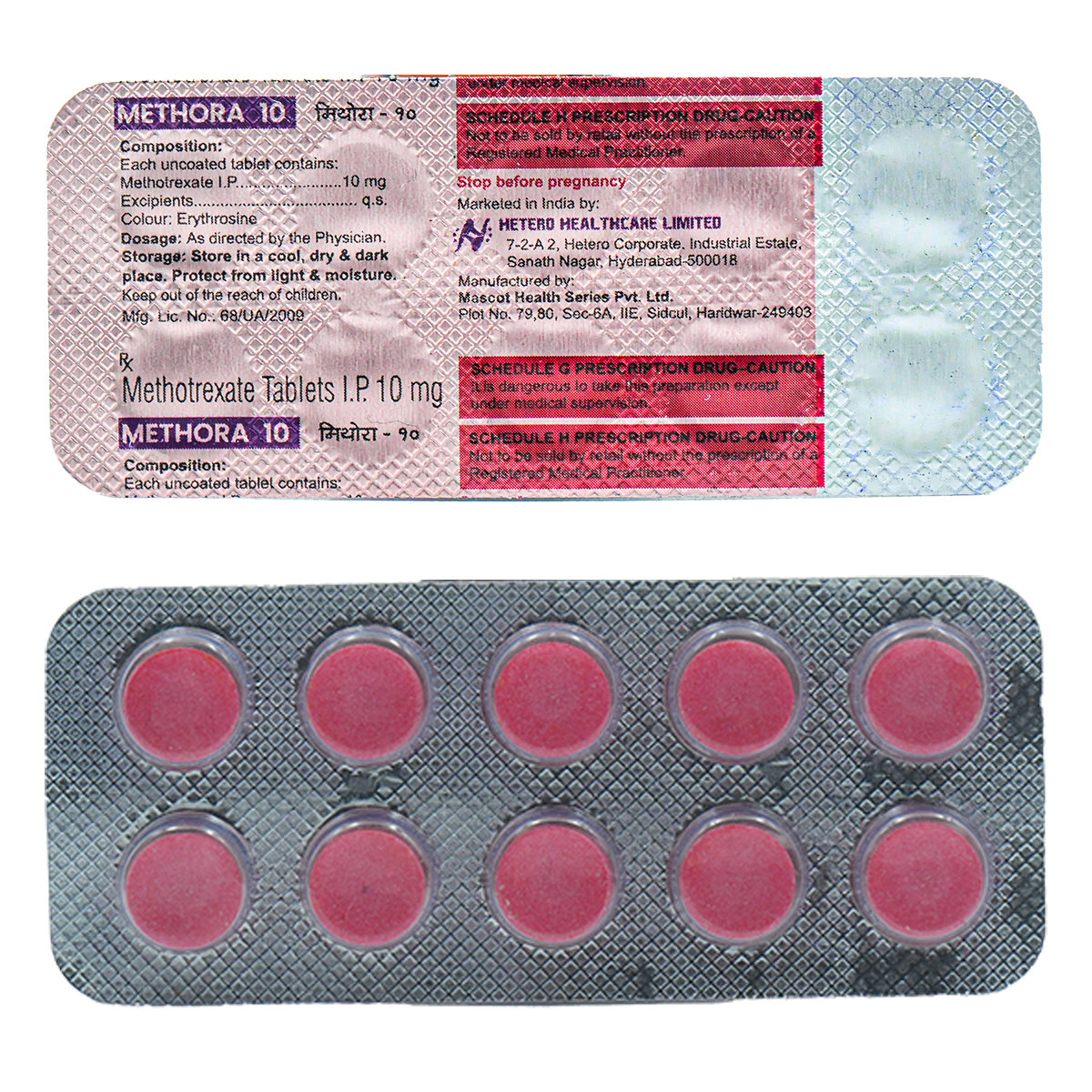
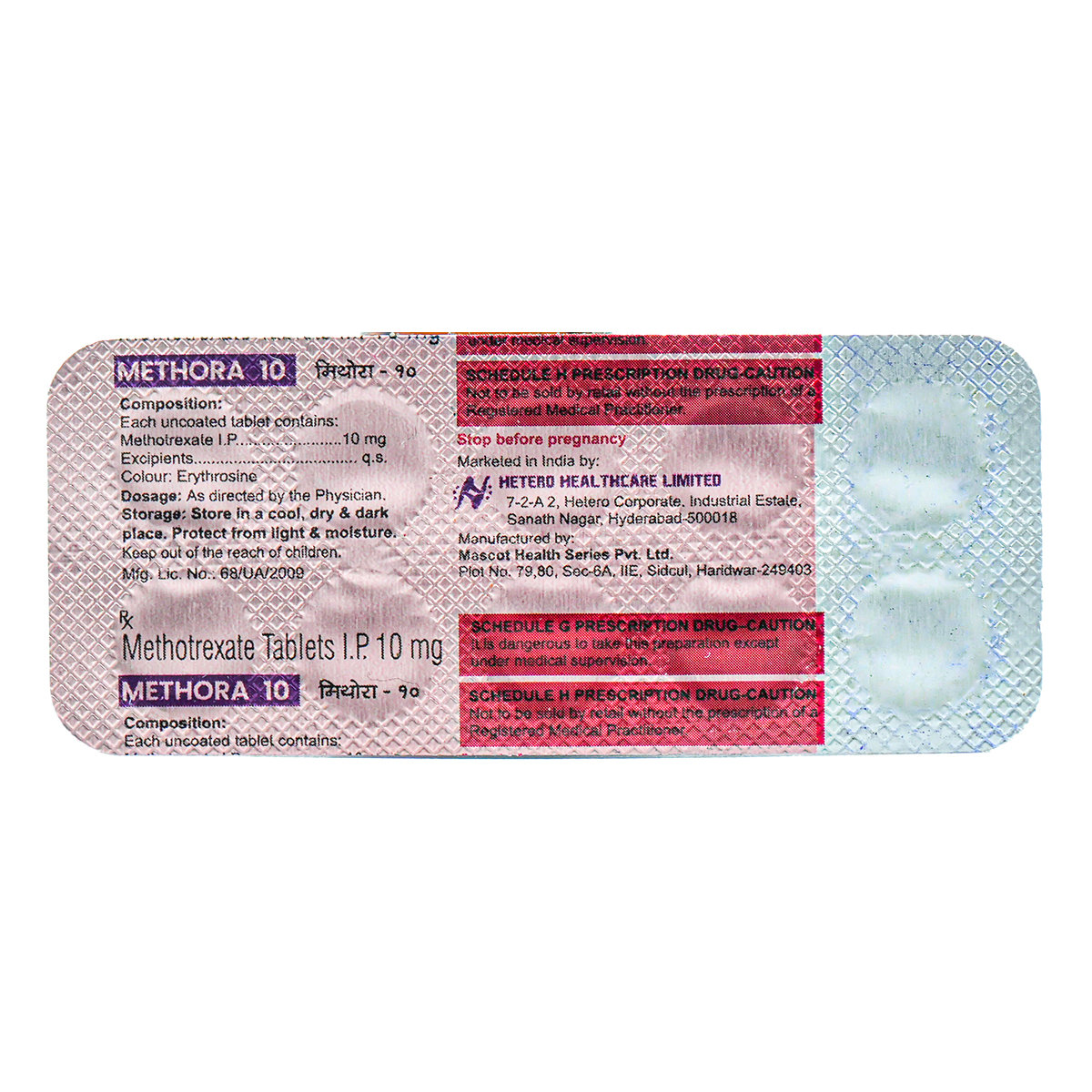
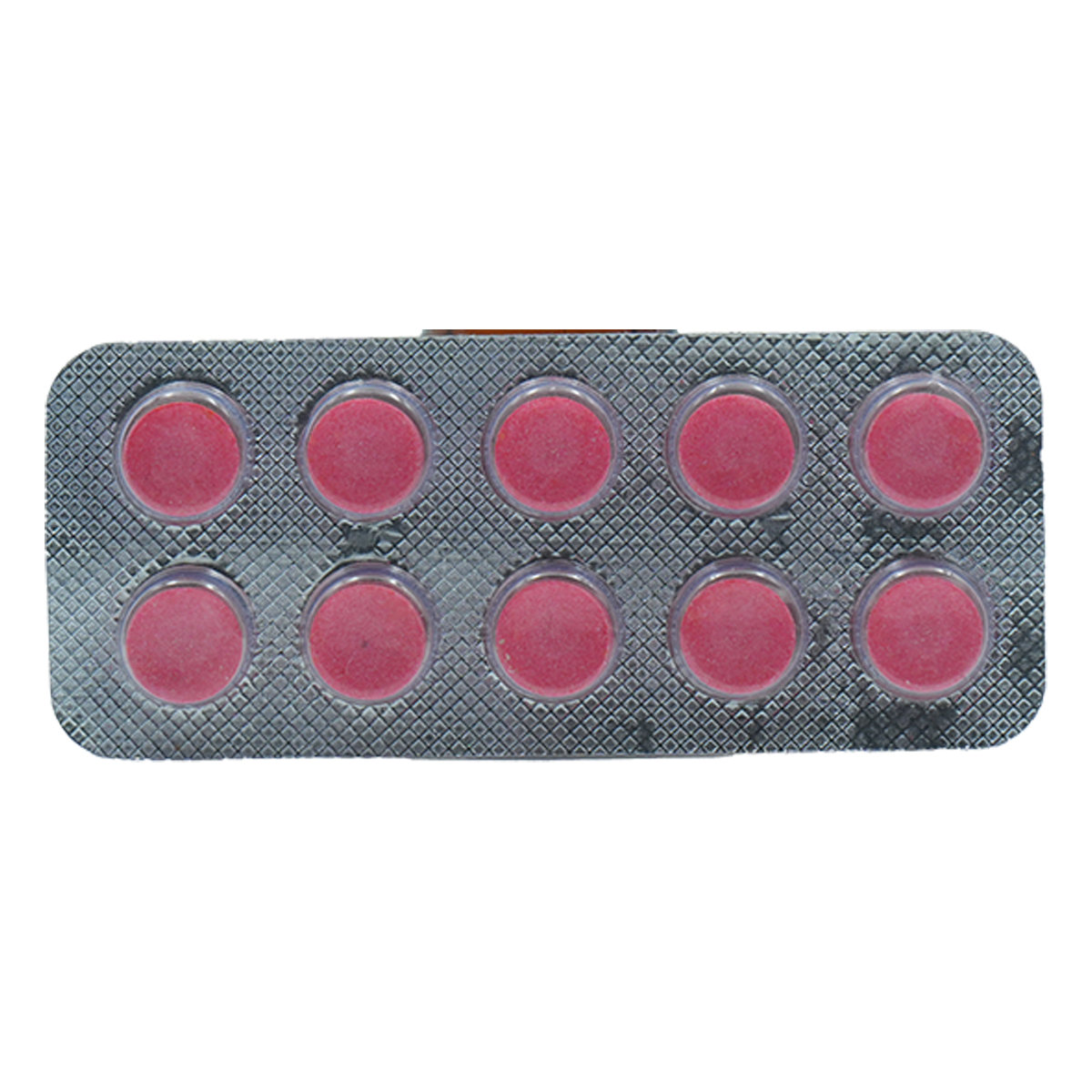






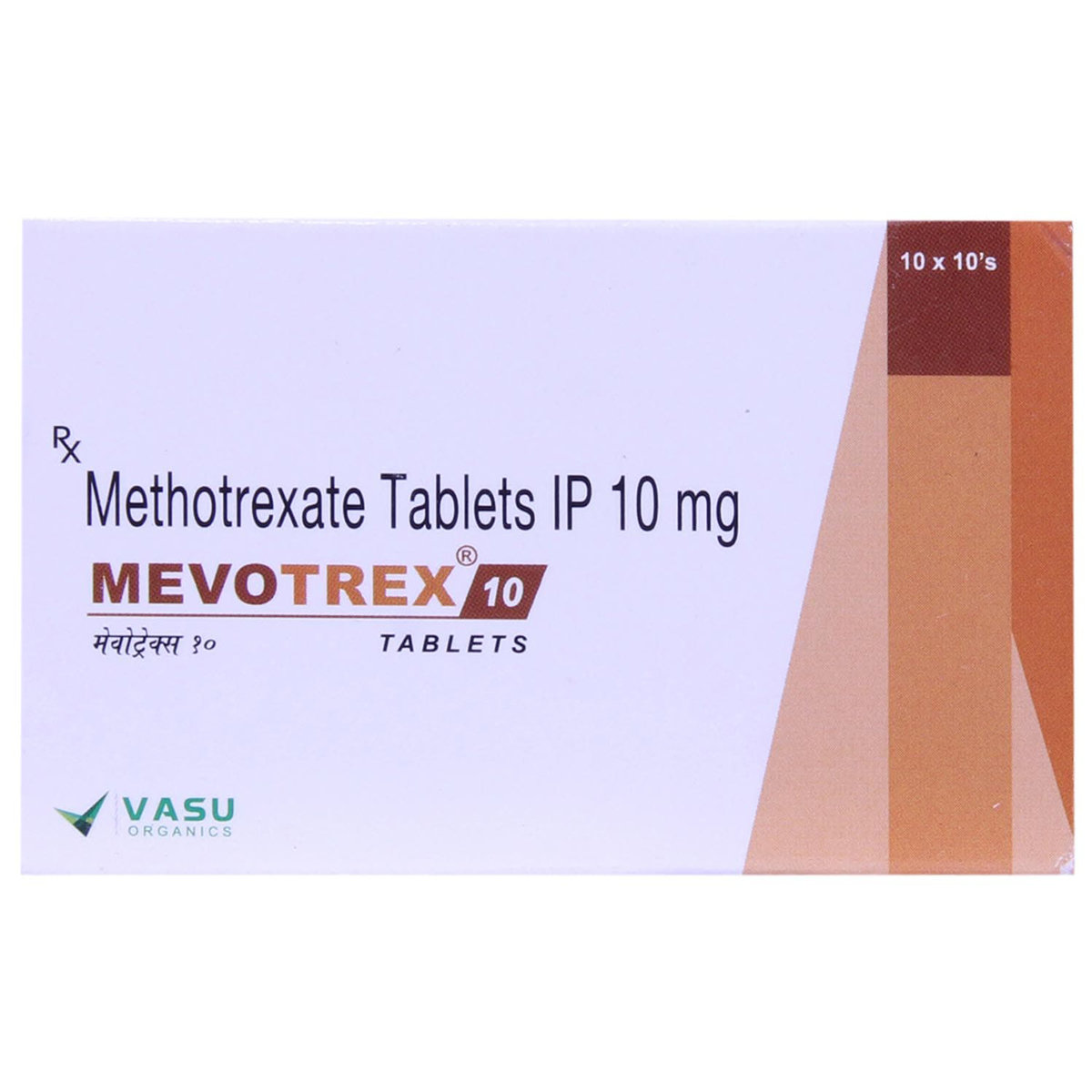
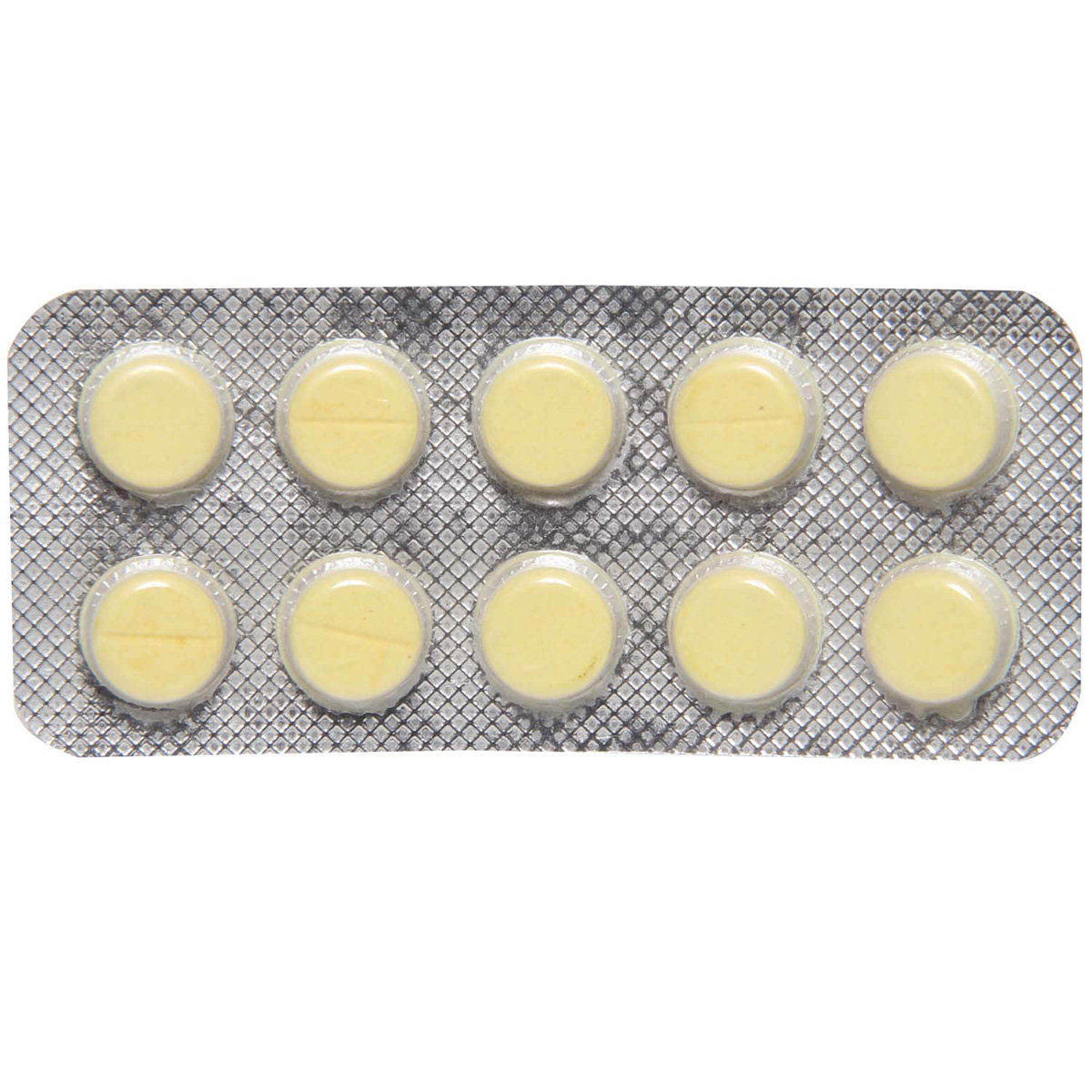
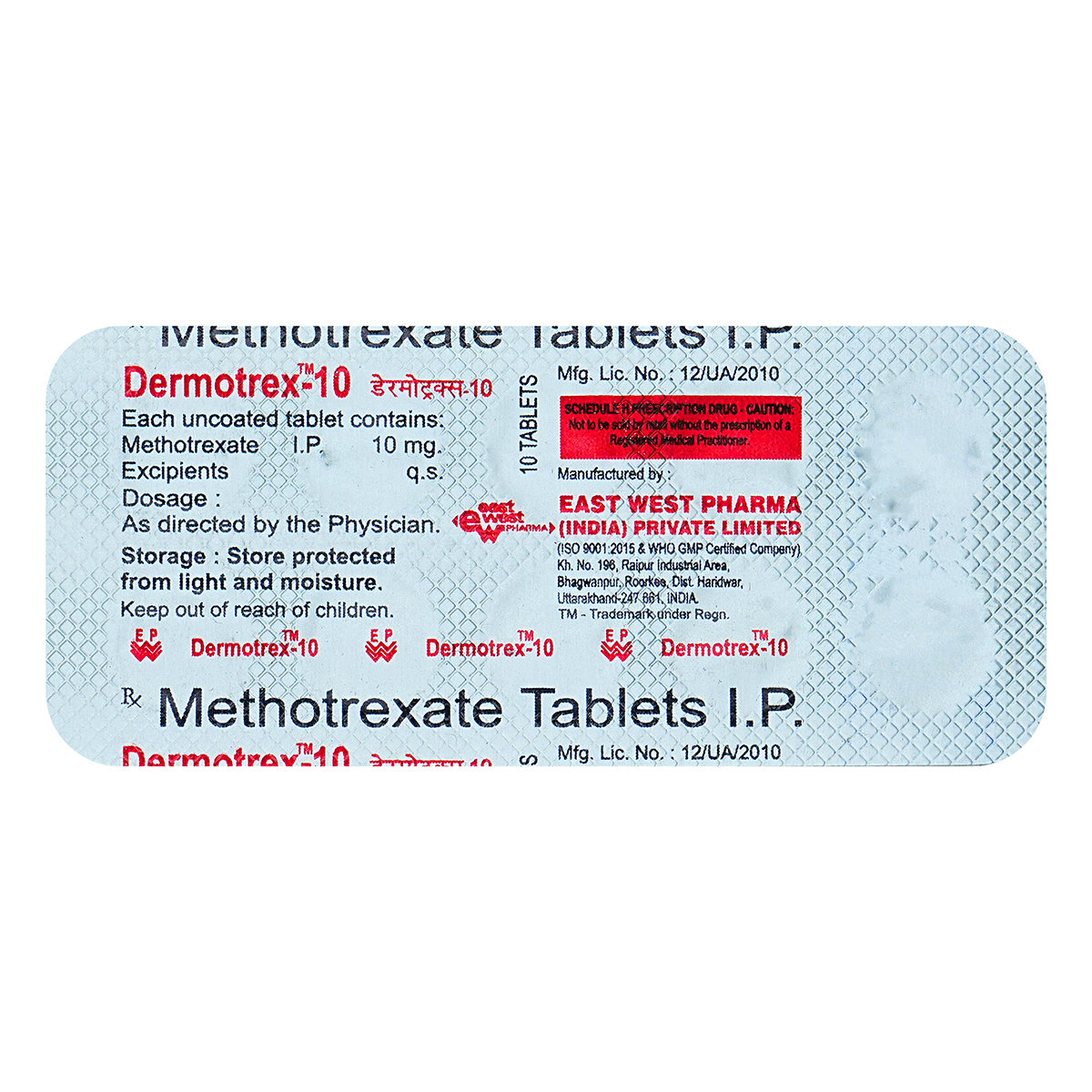
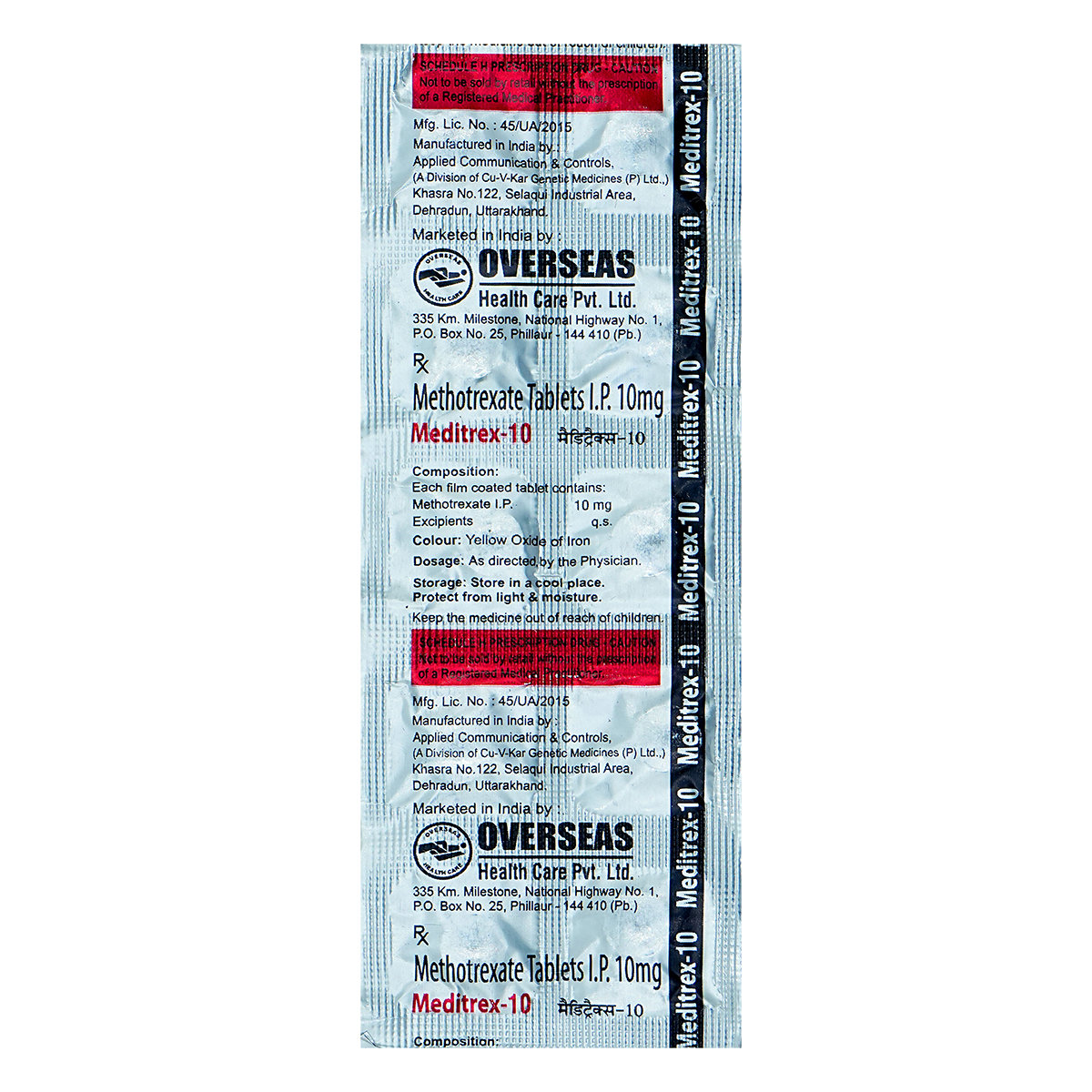
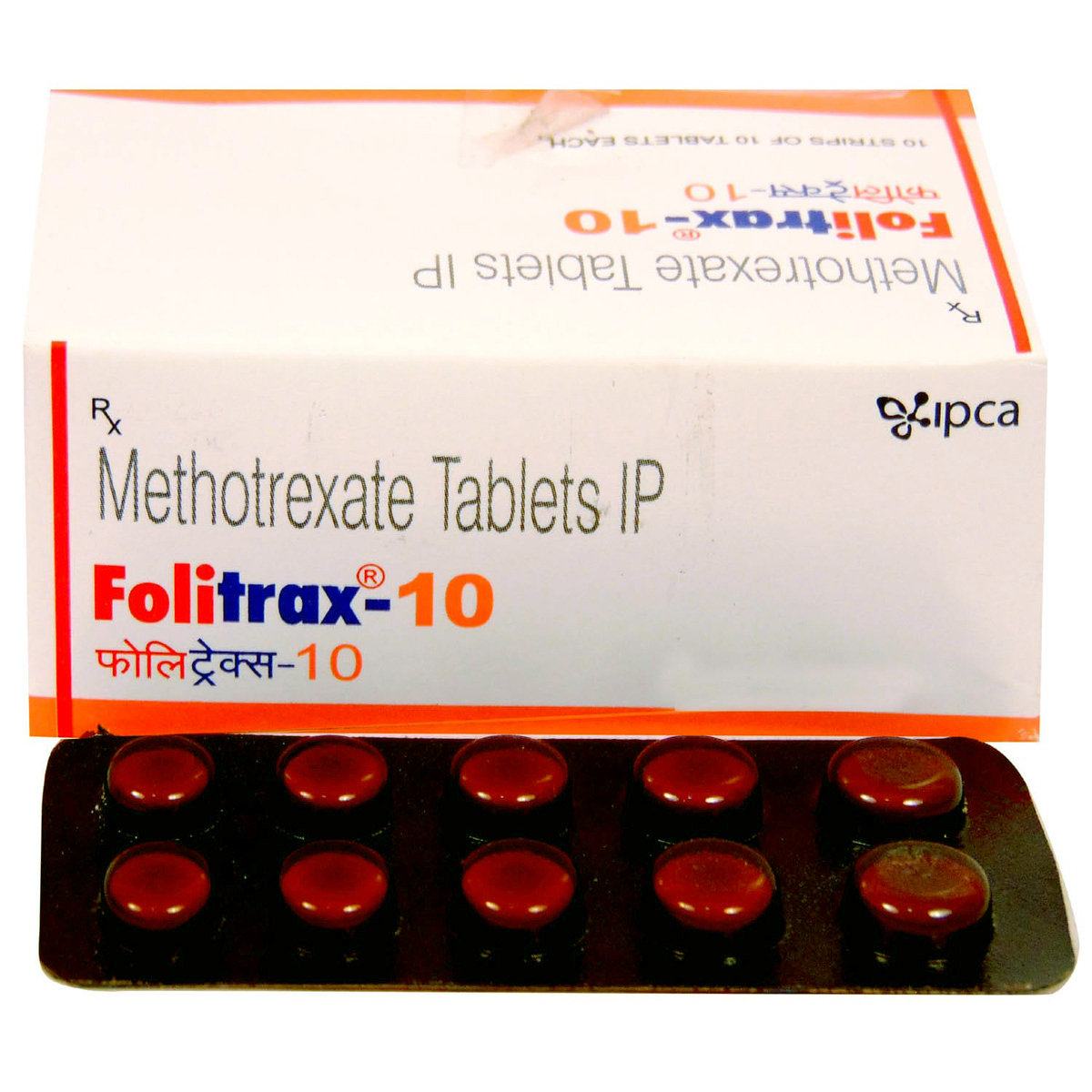


_0.jpg?tr=q-85)

